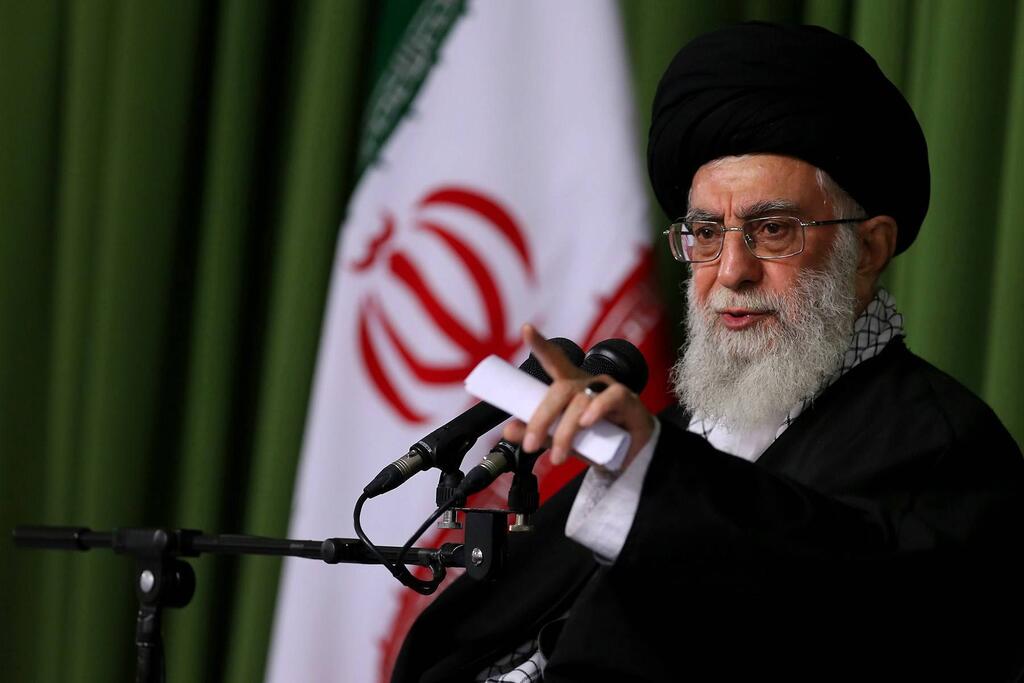U.S. intelligence has obtained new information suggesting that Israel is making preparations for a possible military strike on Iranian nuclear facilities, even as the Trump administration continues diplomatic efforts with Tehran, CNN reported on Tuesday, citing multiple U.S. officials familiar with the intelligence.
According to these officials, such an attack would mark a major break with President Donald Trump’s current diplomatic approach and could potentially trigger a broader regional conflict in the Middle East—an outcome the U.S. has sought to avoid.
Footage of Israeli Air Force jets departing for strike on Iran, October 2024
(Video: IDF)
The intelligence indicates that while Israeli leaders have not made a final decision, there is a notable increase in military activities that could signal preparations for a strike. These include movements of aerial munitions and the completion of air exercises. Intercepted communications and observations of Israeli military movements have further contributed to U.S. concerns.
However, officials also noted that these steps could be part of a strategic pressure campaign aimed at forcing Iran to abandon key components of its nuclear program, by signaling the potential consequences of refusing to do so.
One U.S. official noted that the likelihood of an Israeli strike has "gone up significantly in recent months.” The potential for such action is influenced by Israel's assessment of the ongoing U.S.-Iran negotiations and whether they believe the resulting agreement sufficiently addresses their security concerns, namely a deal that would allow Iran to retain any of its enriched uranium.
CNN said it contacted Israel’s National Security Council and Prime Minister Benjamin Netanyahu’s office, but did not receive a response. The Israeli Embassy in Washington also declined to comment.
Iran's Supreme Leader Ayatollah Ali Khamenei expressed skepticism on Tuesday about the success of nuclear talks, saying that U.S. demands for Iran to cease uranium enrichment are excessive and unacceptable. Khamenei said he does not expect negotiations to “reach a conclusion,” adding that Iran will not accept demands to stop enrichment.
A senior Western diplomat who met with President Trump earlier this month told CNN that the president indicated the U.S. would allow only a few weeks for negotiations to succeed before considering military options. Currently, the White House maintains a policy focused on diplomacy.
While Iran is considered to be at its weakest military state in decades, U.S. officials believe Israel sees a "window of opportunity" to act. The U.S. is reportedly stepping up intelligence gathering to be prepared to assist if Israel decides to proceed, although another source familiar with the Trump administration’s thinking indicated that U.S. support would likely depend on a significant provocation from Tehran.
An Israeli source told CNN that Israel would be prepared to take military action independently if the U.S. negotiates a deal that Israel deems unacceptable. Another source familiar with U.S. intelligence suggested that Israel might act to disrupt a potential agreement if it believes President Trump is inclined to accept a "bad deal.”
President Donald Trump announces 'direct' negotiations with Iran
(Video: Reuters)
Israel is caught "between a rock and a hard place" as Washington pursues nuclear negotiations with Iran, said Jonathan Panikoff, a former senior intelligence official specializing in the region, highlighting the mounting pressure on Netanyahu.
According to him, the Israeli leader is under pressure—both to avoid a U.S.-Iran deal that Israel sees as insufficient and to avoid alienating President Trump, who has already broken with the Israeli prime minister on key security issues in the region.
Get the Ynetnews app on your smartphone: Google Play: https://bit.ly/4eJ37pE | Apple App Store: https://bit.ly/3ZL7iNv
“At the end of the day, the Israeli decision-making is going to be predicated on U.S. policy determinations and actions, and what agreements President Trump does or does not come to with Iran,” Panikoff said, who added that he did not believe Netanyahu would be willing to risk entirely fracturing the U.S. relationship by launching a strike without at least tacit U.S. approval.
Amid the ongoing nuclear negotiations, the New York Times reported last month that Israel had planned a strike on Iranian nuclear sites but was "waved off" by Trump. The president later addressed the report, denying he had blocked the move.
“I wouldn't say waved off,” Trump told reporters in the Oval Office. “I am not in a rush to do it because I think that Iran has a chance to have a great country and to live happily without death... That’s my first option.”
Still, Trump added that any strike on Iran’s nuclear facilities would be “very bad for Iran.” He continued, “I think Iran wants to talk. I hope they want to talk. It would be very good for them if they do. I’d like to see Iran thrive in the future, do fantastically well. I know the Iranian people — they’re incredible people. They always have been."





